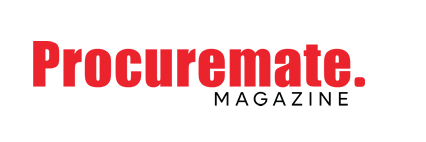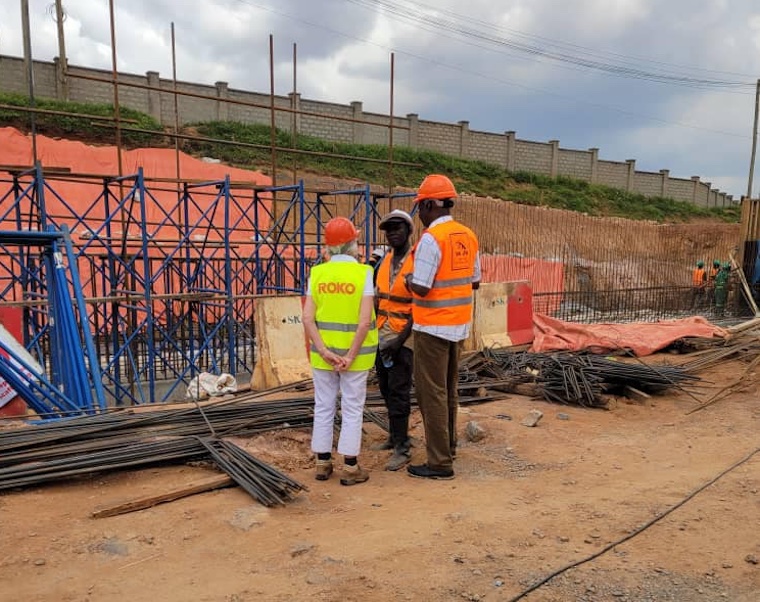Last month, the minister of Finance, Matia Kasaija, presented a Shs 72.1 trillion budget for the financial year 2024/25. According to the budget, the government is projected to generate Shs 32.3 trillion through revenue collection to fund its activities.
Additionally, the government expects to borrow Shs 1.3 trillion from external sources and Shs 8.9 trillion from internal sources. Domestic debt refinancing is anticipated to amount to Shs 19.8 trillion, with Shs 9.5 trillion allocated for project support through grants and loans
The budget estimates indicate that the first allocations will go towards external debt repayments, totalling Shs 3.149 trillion. Project support through loans and grants is allocated Shs 9.583 trillion. Domestic refinancing is set at Shs 12 trillion, while interest payments are a substantial Shs 9 trillion.
Other allocations include Shs 603 billion for the recapitalization of the Bank of Uganda (BoU), Shs 200 billion for domestic arrears, and Shs 9.1 trillion for domestic debt payments to the BoU. Of the total resource envelope, Shs 806.3 billion has been allocated to bail out local companies.
The local firms receiving support include Dei Biopharma Ltd., Roko Construction Company, Jena Herbals, Jennifer Serwanga Sempala, and the anti-tick vaccine project at Makerere University.
ROKO CONSTRUCTION COMPANY
Ramathan Ggoobi, Uganda’s secretary to the Treasury, highlighted that in the current financial year, the government has allocated Shs 56.2 billion as payment for the shares it acquired in Roko Construction Company. In July 2022, parliament approved the government’s decision to purchase 150,000 preference shares worth Shs 207.13 billion in Roko Construction Company Ltd.
At that time, Roko had projects with signed contracts worth Shs 1.064 trillion, of which Shs 696.6 billion was for government projects, including the Parliamentary Building. The company’s indebtedness as of May 31, 2022, stood at Shs 202.4 billion.
Recently, Roko had contingent liabilities from bank guarantees for ongoing projects worth Shs 130.9 billion, while its indebtedness to financial institutions totals Shs 35.7 million and $20.7 billion (Shs 78.8 trillion), with dues to local suppliers amounting to Shs 46.8 billion.
Ggoobi emphasized the importance of government investment in the company to ensure the completion of these contracts and its financial recovery.
“At the end of the day, Uganda’s biggest construction company and hundreds of jobs have been saved,” he stated. He also noted the broader economic benefits, saying, “URA is collecting more tax revenue, and the larger economy is benefiting from a positive multiplier effect. More strategic local companies have been supported. That’s economics that works.”
The government’s decision to acquire preference shares in Roko Construction Company Ltd also sparked controversy. Former Leader of Opposition in Parliament (LoP) Mathias Mpuuga and a group of MPs petitioned Speaker Anita Among, challenging the decision. They accused Deputy Speaker Thomas Tayebwa of flouting parliamentary rules by bringing up the matter without it being on the order paper.
Mpuuga stated, “We have petitioned the house expressing displeasure, and we shall have this matter formally presented to the house and we shall ask the house to make a decision. Parliament is an honourable house and at all times should reflect the wishes of the people.”
Masaka District Woman MP Joan Namutaawe criticized the bailout process, saying, “To stop misappropriation of public funds through an abused process, I have appended my signature on a motion opposing the uncharitable manner in which the deputy speaker hurriedly passed a bailout of Shs 207.3 billion for Roko Construction Ltd.”
She argued that the bailout showed favouritism for foreign-owned businesses at the expense of local enterprises, noting the government’s refusal to bail out Sembule Steel Mills in 2013, which had requested Shs 7 billion. Namutaawe also pointed out that Roko Construction Ltd, which has 27 lawsuits for default in the Uganda Commercial court, was unfairly selected for the bailout.
She and other MPs demanded the reversal of the bailout and called for clear policy guidelines on how the government determines which companies qualify for financial support using public funds.
DEI BIOPHARMA LTD
This financial year, the government has allocated Shs 723 billion to the financially distressed multi-billion-dollar pharmaceutical and mRNA vaccine manufacturing facility, Dei Biopharma Ltd. Owned by biochemist Mathias Magoola and funded by Equity Bank Ltd., the facility aims to produce affordable, high-quality medicines for cancer and malaria treatment. Upon completion, it is projected to produce one billion doses of mRNA vaccines.
According to Finance minister Matia Kasaija, the production of generic drugs, cancer drugs, and human vaccines is scheduled to start by November 2024. “The facility will reportedly create job opportunities for more than 10,000 science professionals and 30,000 others in the support ecosystem. The government is in the process of finalizing equity acquisitions in exchange for its Shs 723 billion investment,” Kasaija stated.
GENESIS OF DEI BIOPHARMA FINANCIAL STRUGGLES
The Observer has learned that Equity Bank Ltd. provided US $100 million (Shs 368.7 billion) in funding for construction, the importation of hi-tech medical equipment and machines, as well as working capital support for Dei Biopharma Ltd. Additionally, Uganda Development Bank contributed US$20 million (Shs 73.7 billion) and Tropical bank provided US$2 million (Shs 7.3 billion) in loans.
Magoola is reportedly struggling with these loans. Last year, Tropical bank, through Kaweesi and Partners Advocates, published a notice to auction some of Magoola’s properties in Matugga to recover its money. The properties include Kyadondo Block 82, Plot 1081, and Plot 1082—about 51 acres of land—and another 9.5 acres located near the Dei Pharmaceutical facility.
At that time, Equity bank was also under pressure to put Magoola’s property up for sale. Magoola owns several companies, including Dei Industries, which deals in maize and wheat milling and processing; Dei BioPharma Ltd.; Dei Natural Products; and others.
Magoola signed an off-take agreement with the government to supply drugs for more than 10 years. Under the agreement, the government will save billions spent on the importation of drugs. Magoola applied for a loan of $60 million (Shs 221 billion) from Equity bank to boost Dei Industries.
During the setup of a pharmaceutical manufacturing facility, the Covid-19 outbreak in 2020 prompted Magoola’s partners to convince him to switch to vaccine manufacturing. According to a source, Magoola applied for another loan worth $60 million (Shs 221 billion) from Equity bank under Dei BioPharma Ltd. to manufacture Covid-19 vaccines, as he lacked the capital.
He also invested Dei Industries’ initial working capital in Dei BioPharma Ltd., leading to his financial troubles. Dei Industries later defaulted on the loan repayment, prompting the Bank of Uganda (BoU) to ask Equity bank to recall the two loans. BoU insisted that the client would not be able to service the loans.
“Equity bank explained to BoU that their client will repay both loans once he begins manufacturing and selling drugs and vaccines, but the bank regulator refused. BoU is right about the loans, but it is also under pressure from importers of these drugs,” the source said.
The Observer established that officials from the Bank of Uganda, Equity bank, and other institutions met President Yoweri Museveni in Vietnam regarding Magoola’s loans. The president insisted that the factory should not be sold or auctioned because it would save the region the burden of importing foreign drugs.
He advised that Magoola should be given more money to finish the factory. In May, DEI Pharma Limited was allocated Shs 578.4 billion from the Shs 1.106 trillion supplementary expenditure budget to complete business production and meet its debt obligations and operational requirements, according to the Parliament of Uganda website.
However, this allocation faced significant opposition. Kira Municipality MP Ibrahim Ssemujju Nganda criticized the allocation, stating, “We oppose donating Shs 578 billion to Mathias Magoola (Dei Pharma Ltd). All the activities and items the government is seeking to finance through the second supplementary do not meet the requirements of the Public Finance Management Act.”
He further noted that the funds for Dei Pharma were being diverted from debt service, highlighting that Shs 666 billion had been redirected from the debt servicing vote. Kampala Central Division MP Muhammad Nsereko also criticized the prioritization of funding for a private investor amidst challenges in the health sector.
He emphasized that for a supplementary request, the expenditure should be unforeseeable and unavoidable. Muhammad Muwanga Kivumbi (NUP, Butambala county) added that the government should use the Uganda Development Corporation (UDC) for such investments instead of directly allocating money through parliament.
OTHER BAILOUT BENEFICIARIES
Other beneficiaries include several notable projects and individuals receiving government support for their innovative contributions to healthcare and pharmaceuticals:
1. Anti-Tick Vaccine Project at Makerere University:
Spearheaded by Dr Margaret Saimo-Kahwa, this project has successfully undergone clinical trials.
An additional Shs 25 billion has been allocated for the production and commercialization of the anti-tick vaccines, aiming to address the widespread issue of tick-borne diseases.
2. Jena Herbals:
Led by Prof Patrick Ogwang, known for the Covidex therapeutic, Jena Herbals has received support to undertake clinical trials of natural therapeutics and establish an internationally certified production facility. The government has allocated Shs 2.07 billion this financial year to aid in the manufacturing and commercialization of these therapeutics.
3. Prof Jennifer Serwanga Sempala’s Human Vaccine Research:
Prof Jennifer Serwanga Sempala has been allocated Shs 25.24 billion to advance her research in human vaccines. These funds will support the development and initiation of vaccine production, contributing to local and global health initiatives.

